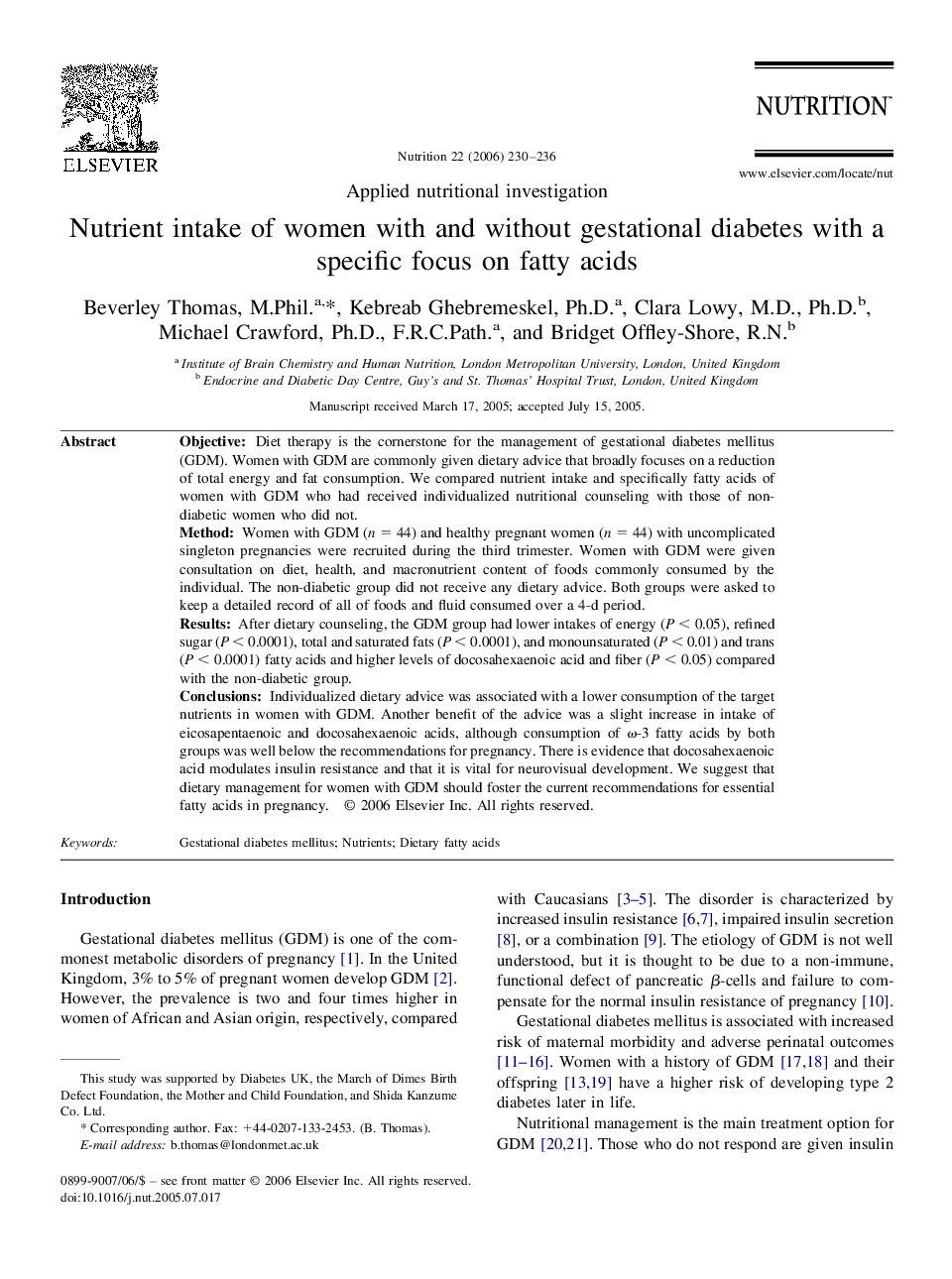| Article ID | Journal | Published Year | Pages | File Type |
|---|---|---|---|---|
| 3277727 | Nutrition | 2006 | 7 Pages |
ObjectiveDiet therapy is the cornerstone for the management of gestational diabetes mellitus (GDM). Women with GDM are commonly given dietary advice that broadly focuses on a reduction of total energy and fat consumption. We compared nutrient intake and specifically fatty acids of women with GDM who had received individualized nutritional counseling with those of non-diabetic women who did not.MethodWomen with GDM (n = 44) and healthy pregnant women (n = 44) with uncomplicated singleton pregnancies were recruited during the third trimester. Women with GDM were given consultation on diet, health, and macronutrient content of foods commonly consumed by the individual. The non-diabetic group did not receive any dietary advice. Both groups were asked to keep a detailed record of all of foods and fluid consumed over a 4-d period.ResultsAfter dietary counseling, the GDM group had lower intakes of energy (P < 0.05), refined sugar (P < 0.0001), total and saturated fats (P < 0.0001), and monounsaturated (P < 0.01) and trans (P < 0.0001) fatty acids and higher levels of docosahexaenoic acid and fiber (P < 0.05) compared with the non-diabetic group.ConclusionsIndividualized dietary advice was associated with a lower consumption of the target nutrients in women with GDM. Another benefit of the advice was a slight increase in intake of eicosapentaenoic and docosahexaenoic acids, although consumption of ω-3 fatty acids by both groups was well below the recommendations for pregnancy. There is evidence that docosahexaenoic acid modulates insulin resistance and that it is vital for neurovisual development. We suggest that dietary management for women with GDM should foster the current recommendations for essential fatty acids in pregnancy.
